Sussex Digital In Reach Team

















The
In 1947, computer pioneer Grace Hopper found herself working on a Mark II Computer at Harvard University. Her associates discovered a moth trapped in one of the computer's relays and was causing an error. The operators removed the moth and taped it in their log book, identifying it the "first actual case of bug being found." Word got out that the team had
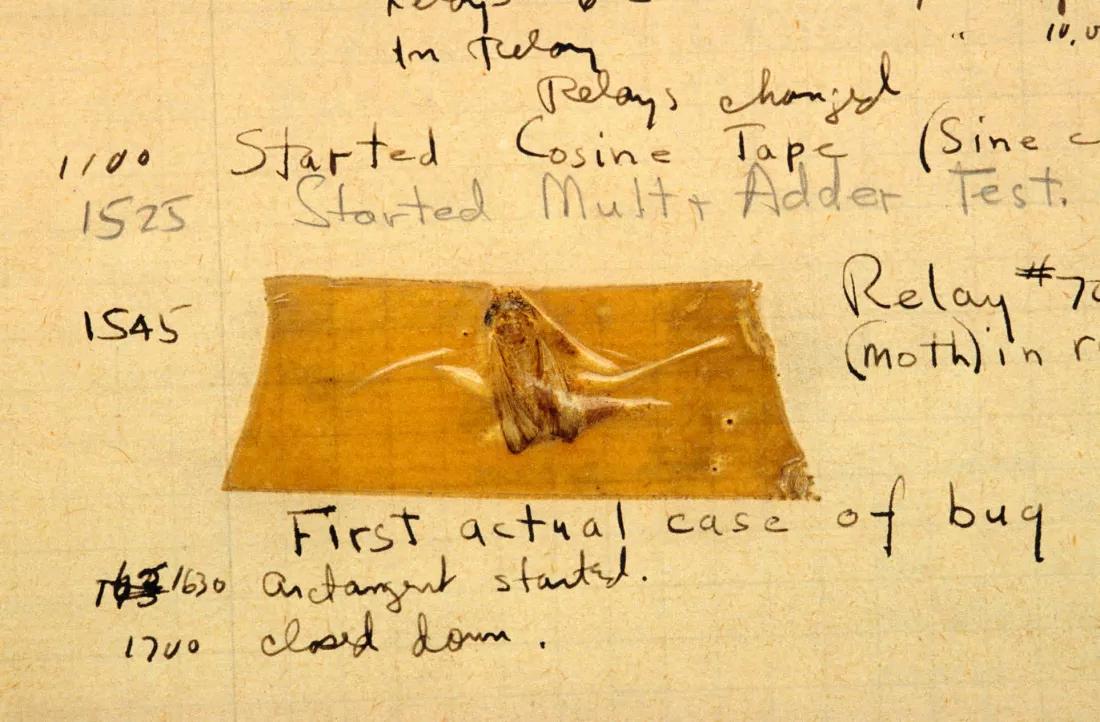

Sussex Digital In Reach Team are a dedicated team of people, brought together to assist you with all things digital in your care setting. Get in touch today, or visit our website to find out more about what we do, and how we can help.

sussexdigitalteam.co.uk

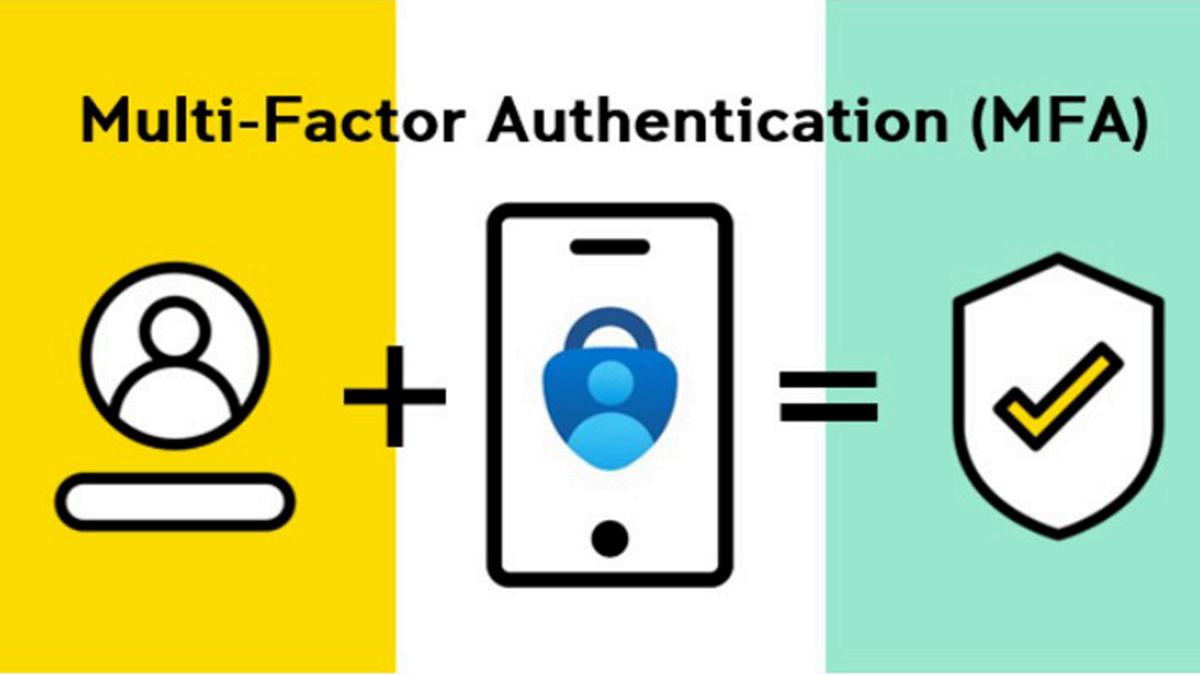
The Data Security and Protection Toolkit (DSPT) for 2024-25 is now live and ready to use There’s one new mandatory question on multi-factor authentication which providers need to answer to reach Standards Met Every year, the DSPT – the self-assessment tool on data protection and cyber security – is reviewed and updated to ensure it covers the issues that are essential to protecting information The DSPT for 2024-25 is now live If you’ve already added information to the toolkit, don’t worry, all the data you entered will still be held within the updated one. If you’re updating and republishing your DSPT you will be prompted to answer an additional mandatory question on multi-factor authentication (MFA). If you’re publishing for the first time and want to get to Standards Met – which is what you should aim for, you’ll need to answer this new question on MFA as well.
MFA is a security measure that adds an extra layer of protection to your online accounts by requiring more than just a password to log in This could involve receiving a text message or email with a code, using a fingerprint scan, or employing an authenticator app You’ve likely already encountered MFA when using online banking or logging into social media accounts The goal of MFA is to ensure that only authorised users can access sensitive systems, such as your digital social care record or any cloud-based services By implementing MFA, organisations can significantly reduce the risk of data breaches and keep their information secure

It’s going to become increasingly important, so care providers need to get arrangements in place.
DSPT 2024-25 live: New question on Multi-Factor Authentication

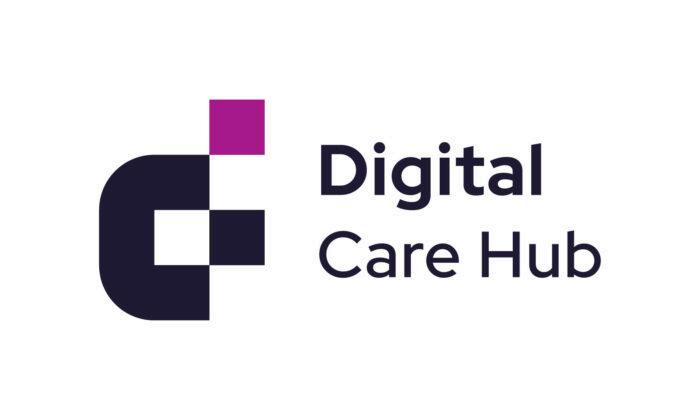
How social care providers can review and republish the DSPT including what’s changed with the 2024/25 edition
Date: Tuesday 12th November 2024 - Online / Webinar
Start: 15:00 Duration: 1hr Book Now
This webinar is part of our ‘DSPT In-Depth’ series where we dive deep into different sections of the care sector’s DSPT. The Data Security and Protection Toolkit (DSPT) is the officially-recognised, free, online self-assessment of health and social care providers’ data security and protection policies, procedures and processes
This session will focus on the data security section of the DSPT and will be delivered by OACP and the DSPT team Specifically, we will cover data breaches and Business Continuity Plans (BCP)
Date: Tuesday 19th November 2024 - Online / Zoom w
Start: 14:00
Duration: 1hr
Book Now

Bill which aims to allow people’s data to be easily transferable across the NHS and social care has been introduced to Parliament.
Delivered by the Department for Science, Innovation, and Technology (DSIT), the bill will require IT suppliers for the health and care sector to ensure their systems meet common information standards to enable data sharing across platforms. The aim is to “lay the foundations for patient information to flow safely, securely, and seamlessly and ultimately to improve clinical outcomes, speed up the delivery of care, and reduce duplication”.
IT providers provide essential products for day-to-day clinical tasks in the health and social care system, however they are currently not uniformly based on information standards that enable information to be accessed and shared in real time across the entire health and social care system.
DSIT said that the measures will be underpinned by a revamped Information Commissioner’s Office, with a new structure and powers of enforcement.
It added that:
“IT systems in the NHS operate to the highest standards of security and all organisations have governance arrangements in place to ensure the safe, legal storage and use of data,” and “vital safeguards will remain in place to track and monitor how personal data is used, giving peace of mind to patients”.
Secretary of State for Health and Social Care, Wes Streeting, said: “I know people worry about Big Brother, which is why data will only be shared to the most relevant staff and anybody using data must comply with strict security protocols ”
Responding to the announcement, Michelle Corrigan, Programme Director of Better Security, Better Care at the Digital Care Hub said:
“Digital Care Hub fully supports improvements in interoperability & safe & appropriate data sharing to improve care We will work with Government, the care sector & people who draw on services to ensure that the information standards & changes outlined in this Bill work for social care as well as the NHS As we said in our Manifesto for digitisation in the adult care sector this summer, social care providers of all sizes must be supported to understand, implement & benefit from the introduction of standards for their IT suppliers ”
Digital Care Hub’s manifesto called on Government to:
●Co-design data standards with care providers & fund an implementation & support programme for the sector
●Enable role-based access to data so that all staff supporting an individual can access the data they require
●Reduce the data collection burden on social care providers by collecting data once and re-using it and by automating data collection as far as possible
●Generate and share data insights from different systems with care providers in order to monitor trends and i th lit d ff ctiveness of care






We are working towards a truly integrated health and care system. For that to work, we need our online systems to be able to talk to each other effectively, so clinicians have the right information to help them do their job well. Plexus Care Record connects health and care records for practitioners in Sussex, providing them with the right information at the right time By connecting digital systems across GPs, hospital and community healthcare services as well as local authorities, Plexus allows practitioners to securely access and update relevant patient information as part of the shared health and care record anywhere anytime.
You can read a full list of health and care organ the Plexus Shared Care Record here
Plexus Care Record - Sussex Health & Care (ics.nhs.uk)
We are excited to announce that we are looking for roll-out of Plexus, our shared record system. Plexus is continuously growing and developing, and in time, it will ensure that health and social care in Sussex are truly connected, providing you with all the information you need with just a click of your mouse.

Plexus is free for providers and includes data similar to GP Connect, with several additional features to enhance care coordination.
If you are interested in joining this initiative, please contact Nada for more details. Together, we can create a more integrated and efficient care system in Sussex.
Nada Wakeford nada@westsussexpartnersincare.org
Plexus - Shared Record for Sussex
Tuesday 19th November 11.00 - 12.00pm






homes and hospices have voiced concerns he impact of the rise in employer National ce contributions announced in the Budget.
tax rise - but that does not cover private care homes or hospices which provide NHS services. There is also confusion over the impact on GPs, many of which are run as small businesses
The Department for Health and Social Care said further details for GPs will be confirmed in due course - but a Treasury minister told Question Time they will have to pay the tax hike Dr David Wrigley, a GP and deputy chair at the British Medical Association said the impact of the tax rise would be "monumental".
He said on X that many were "already on a financial tight rope" and called for a "rapid announcement of full reimbursement" Mike Padgham, chair of the Independent Care Group, which represents social care providers, said the sector had been "left out in the cold".
"We now employ collectively, more than the NHS - 1.7 million people. So those extra charges are going to hit charities and private sector providers alike when we've been squeezed by local authorities who are themselves short of cash "So if we pay more, we'll have to charge more "
Hospices UK said those providing NHS services should be treated the same as NHS bodies "Paying brilliant, compassionate hospice staff a fair salary makes up the biggest proportion of running costs, and so it's disappointing the chancellor didn't exempt charities, or providers of NHS services which aren't formally part of the NHS, from yesterday's National Insurance rise," it said On Thursday Health Secretary Wes Streeting acknowledged there were a number of healthcare providers that will be affected by the NI rise for employers.
Asked whether social care providers would be protected, he told the BBC's World at One programme: "I'm working through that now and I'll have more to say on that in the coming weeks in terms of what we can do more quickly to deliver the shift I've wanted to see for some time, in the focus of NHS investment spending out of hospitals into primary community." He pointed to the extra £600m allocated to social care in the Budget
Care groups have said this would not be enough and would be "wiped off instantly" by increased staffing costs
For GPs, the Chief Secretary to the Treasury Darren Jones told Question Time on Thursday that GPs will have to pay employer NI contributions
"GP surgeries are privately-owned partnerships, they’re not part of the public sector," he said "They will therefore have to pay them."
But he said "how much they pay will depend on the size", because the government had designed the new system "so that it protects the smallest businesses" "The OBR’s confirmed that over 50% of businesses will either not pay any more than they’re already paying or they’ll pay less or nothing at all because we’ve increased the threshold, the allowance, from £5,000 to £10,500 a year," he said.
He added: "For the broader public sector… we’re going to be working that through the system understanding the implications for different public services "

We were delighted with the support y all showed us, and we received som fantastic feedback from many of you






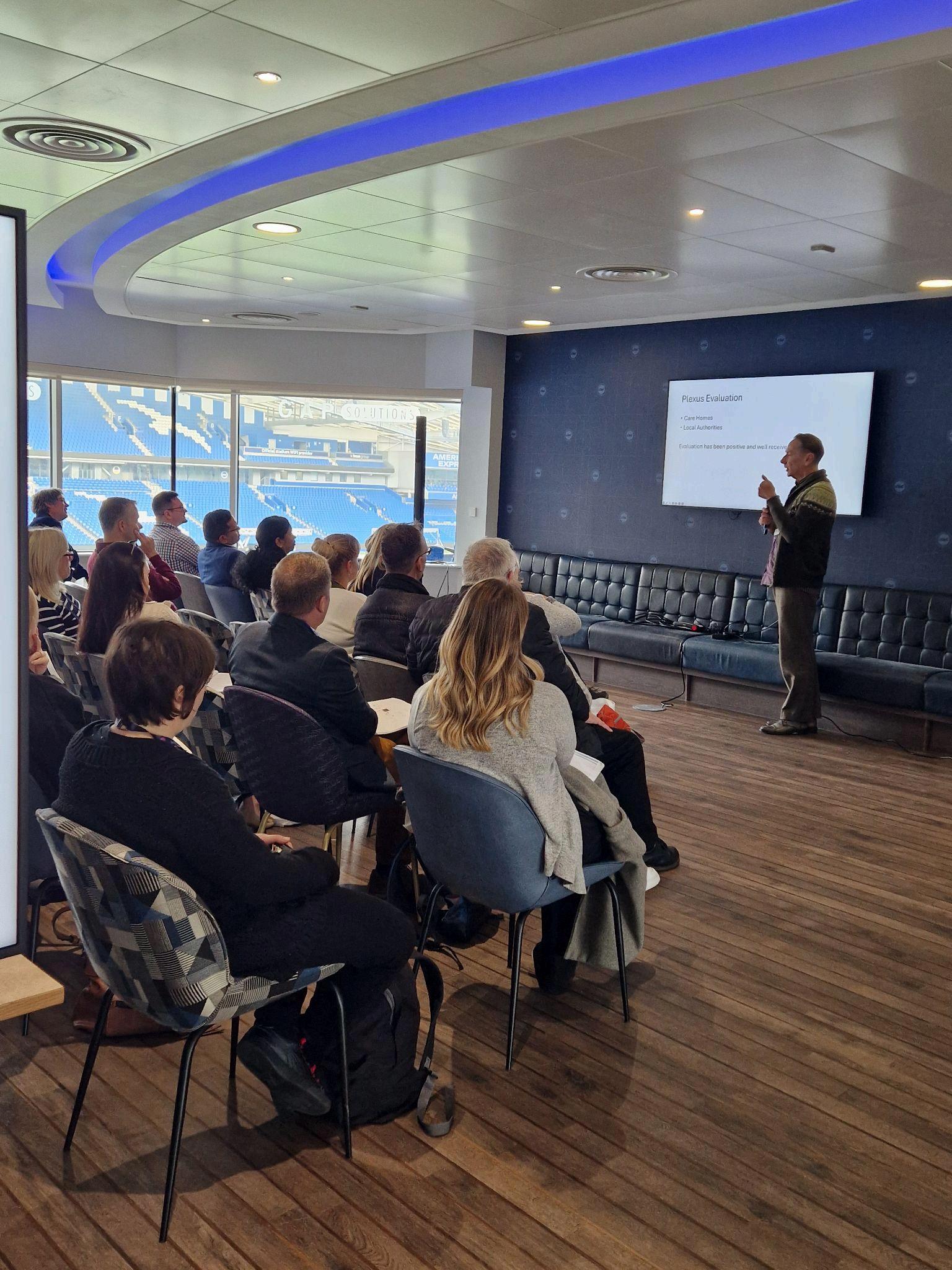


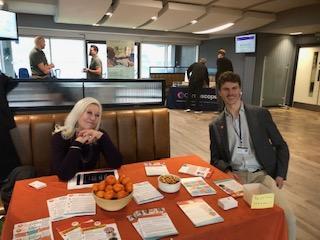





If you are an adult social care provider in England looking to adopt or implement new technology, there may be funding available to help. The funding available depends on your location, what your needs are, and whether you are registered with the Care Quality Commission (CQC). This guidance will help you to identify suitable funding and find contact information for funders.
The clock is ticking to access funding, but your local team is here to help you.
The Department of Health and Social Care (DHSC) provides funding support to help providers implement digital care planning approaches through a digital social care record (DSCR) . The aim is for 80% of CQC registered providers and 80% of people to have a digital social care record (DSCR), in place by March 2025
Providers who have already implemented a DSCR solution are now seeing a huge range of benefits in how they operate, from time savings and greater efficiency through to better collaboration with relatives and huge decreases in the volume of paper being used The clock is ticking to access funding It won’t be around forever, but there’s a local team ready to help you The process is simple when you know how – follow these steps:
1. Reach out to us at the Sussex Digital In Reach Team.
2. Chat to other care providers who are already using digital care plans, find out how the transition has been for them – your local team can put you in touch
3. It’s a good idea to complete the Data Security and Protection Toolkit to make sure you know how to keep both your paper-based and digital information safe and secure.
4. Think about what you need from a digital care plan solution – what does your organisation need it to do?
5. Look through the list of assured solutions on offer and make a shortlist of the ones that meet your needs.
6. Talk to your shortlist of suppliers. Invite them in to give you a demo, watch the videos available on our website.
7. Involve your team – ask their opinions on what sort of solution will work best for them.
8. Decide which solution supplier you would like to go with.
9 Sussex Digital In Reach Team can help you with the process of accessing the funding support on offer to help with your first-year costs.
10. Once you’ve gone through all of these steps, time to work with your chosen supplier to implement your digital care plan solution.
11. You’re off! You’ve taken the first steps on your digital transformation journey.

Over 82% of care providers in Sussex already use digital social care records, making a huge difference for managers and staff If you haven't transitioned yet, what's stopping you?
Time and money are common barriers, but the Digital Social Care programme can help The Adult Social Care Digital Transformation Fund is available this year to cover costs, and our 'Clock is Ticking' campaign provides guidance on securing funding and choosing the right solution Visit Digital Social Care Records (sussexdigitalteam.co.uk) for more details and local support.

ds save time and money, streamline processes, and improve care quality us, your local team, for help and act now before the funding deadline digitising your care planning today and experience the benefits.




Nobi Light Falls Prevention Technology:
An innovative solution is changing the game in fall prevention and response:
Benefits of Nobi Light Falls Prevention Technology:
●Prevention is Better Than Cure: Nobi’s smart lighting reduces falls by 84%, providing a safer environment for your clients
●Swift Assistance: In the event of a fall, Nobi ensures help is on the way within 90 seconds, potentially saving lives
●Empowering Staff: With Nobi, staff are alerted to potential falls before they happen, allowing for proactive care
●Privacy Guaranteed: Nobi respects the privacy of clients, analysing images locally and sharing them based on user preferences
This grant can equip up to 5 bedrooms with the valuable falls prevention technology of Nobi Smart Lights, and it will also cover the licensing cost for 12 months!
Current funding has now been allo
However, we are now taking ‘expressions of interest’ for applicants to be added to our waiting list.
Please contact us asap: sarah@sussexdigitalteam.co.uk





Grants are available for adopting a Digital Social Care
By going digital, you can enhance the quality of care you provide and streamline your operations. Here’s why you should not miss out:
Benefits of Implementing a Digital Social Care Record:
●Efficiency at Your Fingertips: Capture information easily at the point of care, allowing more time for what matters most—caring for your clients
●Rapid Response: Support staff can react swiftly to changes in clients’ needs, ensuring timely and effective care1
●Secure Sharing: Quickly and securely share vital information between care settings, safeguarding client confidentiality
●Safety First: Minimise risks to client safety with a system that’s always up-to-date and accessible
Contact Claire to find out more: Claire@sussexdigitalteam.co.uk


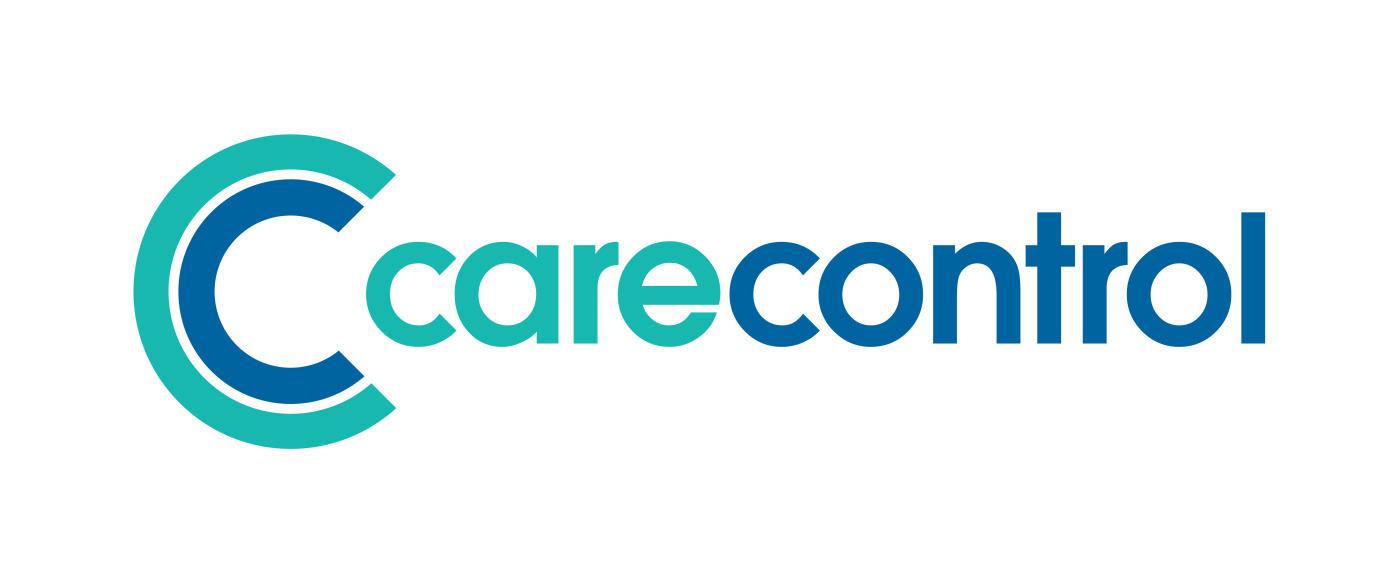



There are many advantages of moving to a digital care record system.
Check out the Assured Suppliers list below and book your demonstration to see how they can positively impact your workplace.
Choosing the right solution for your Digital Care Records





Once you have decided to start using digital social care records (DSCRs), you will need to find the right software solution for your organisation. There are many different options available, so it’s important to take time to consider your needs thoroughly
Working out what you need
When choosing the right DSCR for your organisation, you need to decide what the system needs to do.
Think about what’s essential and what’s optional. All assured suppliers offer basic features, so it’s important to consider what additional features you might need.
See the full list of Assured Suppliers: View the assured solutions list
To find out more about one of the digital social care record systems, visit this YouTube channel to watch a 30 minute demonstration of each solution.







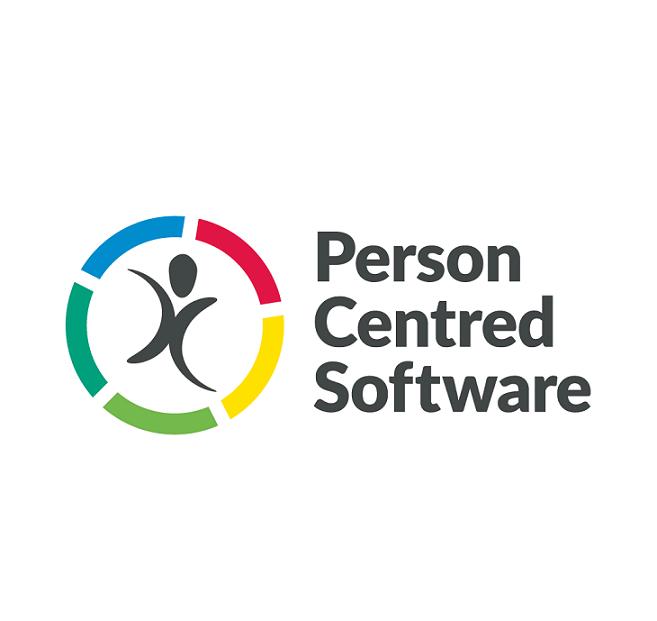

We’re reaching out to invite your organisation to participate in a new pilot programme led by the Department of Health and Social Care (DHSC), focused on safeguarding adult social care services from the growing risk of cyber security incidents. This pilot, set to take place in the South East from October to December 2024, aims to involve approximately 20 adult social care providers.
In recent years, cyber security incidents have disrupted essential health and social care services To counter these risks, we are developing a framework to identify critical suppliers and assess their cyber security preparedness, helping protect the continuity of care
What’s Involved?
● A virtual meeting with your Lead Contact to introduce the trial and identify key participants within your organisation
● A 1-hour introductory webinar to guide you in identifying crucial suppliers and preparing for the workshop.
● A virtual workshop (up to 3 hours for larger organisations, or 1 hour for smaller ones) to assess and prioritise up to 50 of your most critical suppliers, helping us understand their importance to your services.
Why Take Part?
● Strengthen your organisation’s resilience to cyber security risks in the supply chain
● Contribute to shaping national policy by sharing your expertise and insights.
● Enhance support for adult social care providers across the sector
If you’re interested in joining, please let us know by emailing: nada@westsussexpartnersincare.org We’ll provide additional information to help you get started. Thank you for considering this valuable opportunity to protect and advance adult social care services




Date: Wednesday, 20 November 2024
Time: 9:15 AM – 4:15 PM
Organised by West Sussex Partners in Care your care association this symposium explores best practices for delivering outstanding end-of-life care through a series of insightful sessions, discussions, and resources Rooted in the principles of the Gold Standard Framework (Identify, Assess, Pl Support), the event covers essential topics including symptom control, family perspectives, and legalities.
Session Highlights:
● Achieving Outstanding End-of-Life Care
● Person-Centred Care Planning
● Spiritual & Psychological Needs
● Education & Training for Care Teams

● Compassionate Leadership & Well-being

We don’t receive government funding, all our income comes from fundraising, supporter members and sponsorship apart from a small amount of funding from trusts and foundations. There’s more about us here: About The CWC - The Care Workers Charity Last year we paid out over £1Million in grants to care workers Our Impact 2 - The Care Workers Charity
We are here to support care workers, with grants, mental health and well-being and advocacy.

Grants for Care Workers - We offer grants to care workers in the UK who are in crisis. If they’re eligible we can award them up to £500 towards car repairs, white goods, rent arrears etc. There is more information about what they can claim for, and the application form is here: Crisis Grant - The Care Workers Charity We open grants on a monthly basis, and because of the demand exceeding our funds, we close them again very quickly If the grants are closed, please encourage your staff to bookmark the page on the link above so they can check their eligibility and collate the relevant documentation in preparation for the grants opening Case Studies - The Care Workers Charity – these case studies reinforce the need to tell all care workers that there are grants available and they are not required to be paid back.
Mental Health and Wellbeing Support - We offer 10 sessions of mental health support and care workers self-refer, which promotes their dignity and privacy Please let all your staff know about this – we know people don’t always share how they’re feeling, so we encourage employers to tell everyone in their teams There is more information here: Mental Wellbeing and Health Support - The Care Workers Charity – there is NO waiting list, and if care workers need more than 10 sessions, we look at each case individually and help them if we have the funding available
Fundraising - We can’t do anything to support care workers without having money to do it, so we encourage care providers, care workers and others to raise funds for us so we can continue our valuable work. Your teams could organise a bake sale, a sponsored run, a parachute jump, or something else and raise funds to help us There is more information here: Fundraising - The Care Workers Charity with ideas and information about our lottery. You could buy tickets for your teams to enter Winter Prize Draw 2024 - The Care Workers Charity
Employee Giving - You may want to consider a hardship fund for your employees only. We have and continue to run very successful funds for both small and large care providers We would set up an agreement with you, you would provide the funding which would include a proportion for the administration of the fund by our Grants Team. We will work with you to set up the eligibility, the things you would want the funds to be paid out for and to ensure that the grants reach those who need them most, and tackle the issues which are important to your teams For example, you could allocate funds for:
• Cost of living support
• Help with childcare costs
• Energy bills scheme
• Mental wellbeing and health support
For more information: Employee Grant Giving - The Care Workers Charity or email and we can set up a meeting.
Partnerships - There are nearly 2 million care workers in the UK The Care Workers’ Charity exists to support care worker experiencing crisis We work with care providers to create a direct line for care workers to reach the charity
We support care workers, personal assistants, support workers and domiciliary care workers who operate in all parts of the social care sector By working with the charity, care operators show their dedication to care workers and a commitment to improving the social care sector As a partner of The Care Workers’ Charity your organisation will help drive positive change. Care workers who are supported by their organisation will deliver better care The Care Workers’ Charity has been supporting care workers for over a decade we want to work with you so we can support care workers in the best ways

You can sign up online: Supporter Membership - The Care Workers Charity or contact neil@thecwc.org.uk for more information


technology has transformed how we navigate our world, making it easier to find our way, track locations, and even manage time.
it
Global Positioning System (GPS) is a satellite-based navigation system that provides location and time information anywhere on Earth, where there's an unobstructed line of sight to four or more GPS satellites. Developed by the U.S. Department of Defense, it was initially intended for military use but has since become a vital tool for civilians. From smartphones to cars, fitness trackers to drones, GPS is everywhere. Let's dive into 20 fascinating facts about this incredible technology that keeps us on the right path.
Global Positioning System (GPS) technology has revolutionised how we navigate the world From finding the quickest route to a destination to tracking fitness activities, GPS has become an integral part of daily life Here are some fascinating facts about this incredible technology.
1. Developed by the U.S. Department of Defense: Initially designed for military use, GPS technology was developed by the U.S. Department of Defense in the 1970s. It became available for civilian use in the 1980s.
2. 24 Satellites in Orbit: The GPS system relies on a constellation of 24 satellites orbiting Earth. These satellites transmit signals that GPS receivers use to determine precise locations.
3. First GPS Satellite Launched in 1978: The first GPS satellite, Navstar 1, was launched in 1978. This marked the beginning of a new era in navigation and positioning technology.

Understanding how GPS works can be quite intriguing It involves a complex interplay between satellites, ground stations, and receivers.
4. Triangulation Method: GPS determines a location using a method called triangulation. By measuring the distance from at least three satellites, a GPS receiver can pinpoint its exact position.
5. Atomic Clocks: Each GPS satellite is equipped with atomic clocks, which provide extremely accurate time measurements. These precise time signals are crucial for calculating distances.
6. Ground Control Stations: Ground control stations monitor and manage the GPS satellites. They ensure the satellites are functioning correctly and their orbits are maintained.
GPS technology is not just for navigation. Its applications span various fields, making it an indispensable tool in modern society.
7. Navigation Systems: One of the most common uses of GPS is in navigation systems for cars, boats, and airplanes. It helps users find the best routes and avoid traffic.
8. Geocaching: Geocaching is a popular outdoor activity where participants use GPS to hide and seek containers, called "geocaches," at specific locations marked by coordinates.
9. Fitness Tracking: Many fitness devices and apps use GPS to track activities like running, cycling, and hiking. It provides accurate data on distance, speed, and routes.
10. Agriculture: Farmers use GPS technology for precision agriculture. It helps in mapping fields, monitoring crop conditions, and guiding machinery for planting and harvesting
The impact of GPS technology extends to various aspects of daily life, often in ways we might not immediately recognise
11 Emergency Services: GPS is crucial for emergency services It helps dispatchers locate and send help to people in distress quickly and accurately
12 Wildlife Tracking: Conservationists use GPS to track and study wildlife It provides valuable data on animal movements and behaviours
13 Fleet Management: Companies use GPS to manage vehicle fleets It helps in tracking vehicle locations, optimising routes, and improving overall efficiency
14 Weather Forecasting: GPS technology aids in weather forecasting by providing data on atmospheric conditions This information helps meteorologists predict weather patterns more accurately
Here are some lesser-known yet fascinating facts about GPS technology that highlight its versatility and importance
15 Time Synchronisation: GPS is used to synchronise time across various systems, including financial networks, communication systems, and power grids
16 Space Exploration: GPS technology is used in space exploration missions It helps in navigation and positioning of spacecraft
17 Augmented Reality: Many augmented reality (AR) applications rely on GPS to provide location-based experiences It enhances the user experience by overlaying digital information on the real world
18 Gaming: GPS is used in location-based games like Pokémon GO It allows players to interact with virtual elements in real-world locations
19 Disaster Management: GPS technology plays a crucial role in disaster management It helps in mapping affected areas, coordinating rescue operations, and delivering aid
20 Personal Safety: Many personal safety devices, like emergency beacons and tracking apps, use GPS to provide real-time location information This can be vital in situations where immediate assistance is needed
GPS technology has transformed how we navigate our world From guiding us on road trips to helping rescue teams find lost hikers, its impact is undeniable Satellites orbiting Earth send signals to our devices, providing precise location data This tech isn't just for maps; it's crucial for military operations, scientific research, and even financial transactions
Accuracy has improved over the years, making GPS more reliable than ever It's fascinating how atomic clocks in satellites ensure this precision Plus, GPS has found its way into everyday gadgets like smartphones and fitness trackers, making our lives easier
As technology advances, GPS will continue evolving, offering even more innovative applications. Whether you're a tech enthusiast or just someone who enjoys a good road trip, GPS technology is something we all rely on.



It’s easy to share information with your online contacts Platforms like social media make it simple for you to broadcast to your family and friends (and even to strangers, depending on your privacy settings) what you’re up to and where you are Apps like Facebook and Instagram allow you to tag your photos with the place they were taken in, and Facebook allows you to tag your statuses with your location Meanwhile, Snapchat allows you to share your current location as you stream live, alerting your followers (and the public, depending on your privacy settings) to your whereabouts
The risks of sharing your location on social media
Some geolocation tags may list the exact address of your location, not just the city or general area you’re in This means that if you share your location anyone who can view your social media posts may be able to find you in person If you have children, they may be sharing their location on social media, which could put them at risk of unwanted contact from strangers
Oversharing could also put your valuables at risk – for example, if you’re showing that you’re away on holiday, you’re essentially announcing that you’re not at your home This could give criminals – including identity thieves – the chance to target your place of residence, if they know where it is
How to keep your location hidden
You may want to minimise these risks by hiding your location on your social media activity. Some ways you can do this include the following:
● Make sure that you’ve got location settings turned off on your phone.
● Check the settings for each app on your phone to ensure that the location tracking is turned off for every individual one. This includes the camera on your smartphone, so that your images aren’t tagged with your whereabouts.
● Don’t share your location manually – that is, don’t type it out in a social media post This includes when and where you are on holiday
● Check that the privacy settings on your social media accounts are set to your preferences, so that you’re only sharing your posts with people whom you trust
You can still connect with friends and family on social media without sharing too much information Being discreet about your location is a good start To find out how else you can protect your identity on social media sites, read this article
The risks of sharing your location on social media | Equifax UK



Cyber Security in your Care Setting A Risk Worth Taking? Wednesday 4th December 2.00 - 4.00pm


Did you know that using public Wi-Fi presents a wide range of cyber security risks to those that use it? Whether you’re at a coffee shop, airport, or library, the convenience of accessing the internet without using your mobile data is undeniable However, this convenience comes with significant risks Here’s what you need to know about the dangers of free public Wi-Fi and how to protect yourself
● Use a Virtual Private Network (VPN): This encrypts your internet connection which makes it much harder to stop hackers seeing the data that you send across the internet when using a public Wi-Fi source
● Avoid Sensitive Transactions: Try to avoid logging into sensitive accounts or making purchases while connected to public Wi-Fi

● Turn off Device Sharing: Go to the system preferences (OS device) or Control Panel (on your Windows device) and choose the "Public" option the first time you connect to a new, unsecured network
● Update Software On All Devices: From the operating system to your smartphone and desktop apps, as they almost always include crucial security updates
● Use Strong and Separate Passwords: For all clients, systems, and software, set a unique password and use a password manager to avoid forgetting them
● Turn on Two-Step Verification: Turn this on where possible for every system and device used, this will notify you of any suspicious activity and give you the chance to stop hackers in their tracks.
● Install Antivirus or an Anti-Malware Protection: Set regular scans to run automatically to screen your devices and systems for harmful content and files.
While free public Wi-Fi is a great convenience, it’s crucial to be aware of the potential dangers it poses. By understanding the risks and taking proactive measures, you can enjoy the benefits of public Wi-Fi while keeping your personal information safe.
If you have any questions or need further guidance on improving your small business cyber security, please do not hesitate to reach out. Remember, when it comes to cyber security, prevention is always better than cure.

Learn more: https://www.secrc.police.uk/free-information-pack www.secrc.police.uk
• Facebook (CRCSouthEast) https://www facebook com/CRCSouthEast
• Twitter (CRCSouthEast) https://twitter com/CRCSouthEast
• LinkedIn (CRC-South-East) https://www linkedin com/company/crc-south-east/
• Instagram (CRCSouthEast) https://www instagram com/crcsoutheast/
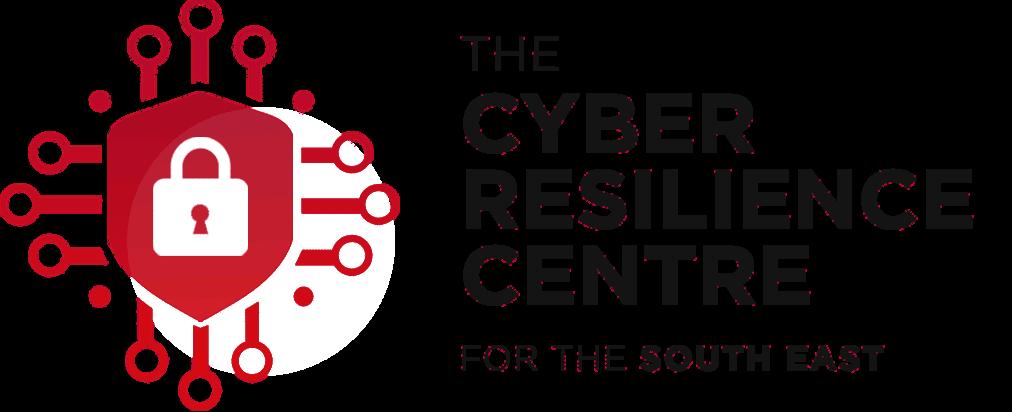

To mark Cyber Security Awareness Month, Better Security, Better Care has published new guidance to help care providers respond to and recover from cyber security incidents.
Small and medium sized care providers may believe they are not at risk of a cyber attack – but that’s just not the case Daniel O’Shaughnessy, Head of Programme Delivery for Better Security, Better Care at the Digital Care Hub explains:
“We’ve heard smaller providers say, ‘We’re not of any interest to a cyber criminal – we won’t get attacked ’ But what they don’t realise is that they can still be a victim, even if they are not the primary target If a software system that they use is breached or attacked – they will be affected We’ve seen cases where staff rosters and payments are blocked; medication records are unavailable; and sensitive data is leaked and put at risk of identity fraud. “It is absolutely critical that care providers have a business continuity plan which covers what they will do if digital systems are out of order It’s always better to plan ahead – but we know it can be difficult to know what to do in the midst of a crisis So we have published new guidance on responding and recovering from an incident ”
The guidance is aimed primarily at the person with lead responsibility for data security and protection within the organisation. Every organisation should have a lead in place. It includes the following advice on the immediate response to a cyber incident:
● Look at your security software (such as antivirus alerts and server logs) to see if you are able to identify the specifics of the attack, and the cause of the incident. If you are unable to do this (but you know which device has been affected) run your antivirus programme to complete a full scan and take notes of the results it gives you. If nothing is found, consider using an alternative antivirus programme.
● Do not turn off your computer – it should remain on to preserve any evidence. Log-off (not shut-down) the computer and ensure no-one uses it – consider putting a sign-on to warn others. Isolate the affected system or device from the network to prevent further disruptions Quarantine the computer by removing the network cable or put it in ‘airplane mode’ if connected to Wi-Fi Secure any memory discs/CDs/DVDs or other media connected to or used in the computer
● Check who else has been affected, speak to your software supplier(s) to find out whether they or other care providers they supply are reporting similar incidents
During the recovery phase, providers should:
● Follow your business continuity plan. Ensure you always have access to a ‘grab-bag’ of key documents necessary to respond to an incident Work with your IT suppliers & IT support to identify the nature & scale of the issues If you manage your own IT, put your business continuity plan into action Depending on the type of incident you are responding to, this may involve: replacing infected hardware; restoring data through backups; or remotely wiping data on a lost or stolen phone or tablet
● Recover hacked accounts. Check suppliers’ websites for details on how to recover hacked online email, social media or bank accounts Check email accounts to see if forwarding rules have been set up by hackers Change passwords Log all devices/apps out of your account Set up multi-factor authentication, update software
● Check cyber security consultants’ credentials. If you’re going to use a consultant, make sure they are reputable and meet your needs View the National Cyber Security Centre assured services
The guide also includes two downloadable resources:
● How to spot a cyber attack: A checklist to help care and administrative staff to recognise if a cyber incident is happening, and who to contact within the organisation Care providers can download, add their data security and protection lead’s details and share the list with staff
● Cyber security incidents: A downloadable form to help data security and protection leads to gather vital information as soon as they expect something has gone wrong
● Access the guide and resources on the Digital Care Hub website www digitalcarehub co uk/cyber-security
Book to attend:

Data Security and Protection Toolkit webinar on Data security on 19 November 2024. This session will cover responding to cyber security incidents. Other resources: Cyber Security Guidance | Digital Care Hub
Interactive Seminar for services who want to understand the practical ways to be ready for their CQC Assessment.
Thursday 14th November - 10.00am - 3.30pm.
This event will bring together frontline managers to learn about the step-by-step ways to be ready to evidence that their service meets CQC expectations to achieve a Good or Outstanding rating
This seminar will cover:
■ why CQC assessment is important
■ CQC standards and legislation
■ CQC monitoring and assessment process, including ratings
■ involving others in the assessment process
■ the importance of quality assurance
■ evidencing that you meet CQC standards
■ latest insight into CQC priorities


Register your place

Lucinda Adam - Political reporter, BBC Sussex
People across East and West Sussex say they are unable to start jobs because of long delays to Disclosure and Barring Service (DBS) checks The background checks are required by employers to inspect a person’s criminal record, usually in roles like care services, healthcare, teaching and childcare
Sussex Police is one of the forces in England with the longest delays for DBS checks
The force said its resources had been overwhelmed by a rise in demand, but it had used additional funding to employ new case workers to tackle the backlog
Alice Brockes, 25, from Burgess Hill, said she had been unable to start a new job as a mental health support worker in Crawley for three months while she waited for her DBS check
“I’m just sat here going through savings, going into debt,” she said “There’s almost an element of shame about it too as I have gone to university for three years to work with vulnerable people, and now I’m stuck here unable to do the one thing that I want to do ”
In Brighton, Elouise Kinsey applied for a DBS check in March while training to be a driving instructor with the AA
She said she cannot complete her qualification until it arrived “We’re living with our heads just floating above water I’m losing income because I can’t start giving driving lessons and I have three people waiting for lessons already,” she said “There’s no one you can contact, no one’s interested in you. You’re just told to wait and that sometimes delays are expected.”
Sussex Police processed 10,633 enhanced DBS applications in September, an increase from 6,436 in the same period the previous year A spokesman for the force said it had experienced delays due to an increased demand and a period of high staff turnover “We recognise the impact these delays have,” he said “Our priority will continue to be the quality of safeguarding work to ensure the safety of the community and fairness to all applicants ” A DBS spokesperson said the average time to process enhanced applications in September was 11 7 days “A small number of forces are currently experiencing delays in completing checks Measures have been introduced to support capacity at a small number of forces who are experiencing backlogs,” they added



The global challenge prize is funded by Alzheimer's Society and Innovate UK and delivered by Challenge Works (part of Nesta) by Stephen Hall
State of the art AI glasses to help people with dementia navigate their environment and a smartwatch that learns daily routines are among five groundbreaking technologies awarded £300,000 as a finalist in the £4.4m Longitude Prize on Dementia.
It is rewarding the creation of new assistive technologies that use AI to transform how people live with dementia after a diagnosis so that they can maintain their independence for as long as possible.
One in three people born in the UK today will develop dementia in their lifetime, with around a million people in the UK living with a form of dementia now. This is projected to rise to 1.4 million people by 2040.
The five finalists, who were announced today in the UK on BBC One’s The One Show, will each receive £300,000 to develop their technologies in the next 15 months The finalists are:
● High-tech glasses that help users recognise objects and people – the technology helps people living with dementia to recognise objects and people and remember what to say or do to improve memory recall This will help them to carry out daily activities independently, such as making a cup of tea or greeting a loved one The glasses, which also work with existing prescriptions, aim to delay the progression of memory loss and use synaesthesia – associating senses such as sights and sounds (CrossSense, Animorph, UK)

● Football pitch sensor technology applied to predict and prevent falls – existing ‘fall’ technology can only inform caregivers once an accident has happened, this groundbreaking update will use the technology that maps how a football moves on a pitch (Ultra Wideband) to establish when falls are likely to happen and ultimately prevent them This tech, worn in the form of a smartwatch designed for older people, could anticipate slips at certain points in a daily routine (e g before bed) or in certain locations (e g the bathroom) By detecting and calculating fall risk, the tech could limit risk of hospital admission which can speed dementia symptom progression (Theora 360, Clairvoyant Networks, Inc, USA)
● A smartwatch-based app to provide guidance on daily routines – this AI software processes data from a smartwatch and sensors around the home to learn about its users’ activities and gently guide them on their routines, reminding them of actions they may have forgotten through personalised cues such as illustrations (eg an open fridge or running tap), text, audio and vibrations If they are not responsive, it will alert a carer The software will become more intensive as a person’s dementia progresses, helping them to stay in their own home and community for longer (AUTONOMOUS, Associação Fraunhofer Portugal Research, Portugal).
● At-home monitoring-box that protects privacy – when a loved one is in the early stages of dementia and is still able to live independently, family members can sometimes worry about their wellbeing. This ‘sensor’ box and automated messaging system scans rooms to help remotely inform family members of the loved one’s wellbeing via WhatsApp or text message (e.g. your mum is up and about and the heating came on at the usual time this morning). This provides reassurance for both family member and user, but unlike existing monitoring technology, doesn’t use cameras or wearables, connecting caregivers without infringing on privacy (Supersense Technologies, UK).
● Home assistance device resembling a traditional telephone – this familiar-looking device offers a screen for video calls which can also display personalised reminders of daily activities The phone connects users to a reassuring voice-recording of their choice that shares prompts on daily activities and displays images of items in that person’s house It also makes video-calling loved ones as easy as picking up the phone, to empower people living with dementia to do things they love that bring meaning (MemoryAid, The MARCS Institute, Western Sydney University, Australia)
Kate Lee, CEO of Alzheimer’s Society said: “Currently, around one million people in the UK live with dementia, a figure projected to rise to 1.4 million by 2040. AI presents exciting opportunities to help those with dementia stay active and independent, enabling them to remain in their own homes for as long as possible. By harnessing the power of technology, we can support memory recall and assist individuals in maintaining their daily routines. The five finalists of the Longitude Prize on Dementia are tackling these challenges in innovative and diverse ways. I look forward to seeing how their technologies evolve over the next year.”


Robots being used in Oxfordshire to help research the importance of touch.

Robots are being utilised in Oxfordshire to enhance the training of occupational therapists by simulating various patient conditions during physical and seated assessments This innovative project is a collaboration between Oxfordshire County Council’s adult social care team, University College London (UCL), and the Oxford Robotics Institute (ORI) The five-year partnership aims to push the boundaries of technology in adult social care, helping therapists better understand the impact of touch in their work
The robots are designed to replicate realistic patient conditions, such as arthritis & dementia, allowing occupational therapists to refine their skills in assessing mobility, posture, & physical interactions By providing a more scientific & standardised approach to training, the robots enable therapists different individuals, improving their assessments & ultimately the care they to the concept of ‘affective touch’ using touch as a form of non-verbal communication to soothe and support patients This is part of a broader exploration of how touch can enhance occupational therapy practices The programme is funded by the Engineering and Physical Sciences Research Council and has led to the development of a robotic mannequin, Mona, equipped with advanced sensors to capture nuanced interactions
Mona allows therapists to practise with life-like simulations of medical conditions, giving them the opportunity to test different scenarios in a controlled environment This cutting-edge technology is set to play a key role in improving how occupational therapists carry out their vital work, providing them with greater confidence in their physical assessments and enhancing the quality of care for residents The ultimate goal is to deepen the understanding of touch as a crucial sense and develop robots that can collaborate more effectively with humans, leading to better, more sustainable outcomes in healthcare
Full article: Robots being used in Oxfordshire to help research the importance of touch












Data Protection - ROPA/IAR and DPIA
Wednesday 6th November: 1.30 - 2.30pm
DSPT - Interactive Workshop - Week 3: Data Security
Thursday 7th November: 1.30 - 2.30pm
Data Security & Your Business Continuity Plan
Tuesday 12th November: 1.30 - 2.30pm
DSPT - Interactive Workshop - Week 4: Systems & Devices
Thursday 14th November: 1.30 - 2.30pm
Plexus - Shared Record for Sussex
Tuesday 19th November: 11.00 - 12.00pm
An Introduction into using Chatbot Artificial Intelligence
Thursday 21st November: 2.00 - 3.00pm
MS Excel Tools
Tuesday 3rd December: 2.30 - 3.30pm
Cyber Security in Your Care Setting - A Risk Worth Taking?
Wednesday 4th December: 2.00 - 3.00pm





Join our Sussex Digital In-Reach Team Facebook
We will keep you up to date variety of topics, such as the news from CQC, discussions, advice, training and up to information designed for Sussex Care staff and managers.




We would love to have your feedback. Whether it’s good or bad, please drop us a line with how you think we’re doing.
Do you have any training ideas or needs we can help with, are there any topics you would like covered in our newsletter or social media posts? Email us to tell us your thoughts. support@sussexdigitalteam.co.uk

Nada Wakeford nada@westsussexpartnersincare.org
Brian Roberts brian@sussexdigitalteam.co.uk
Sarah McNally sarah@sussexdigitalteam.co.uk
Claire Badzek claire@sussexdigitalteam.co.uk
Natasha Fowler natasha@sussexdigitalteam.co.uk
Georgie Ind georgie@sussexdigitalteam.co.uk
Sam Harper sam@harperdigitalskills.co.uk
Or phone us on 07860 630063 www.sussexdigitalteam.co.uk




